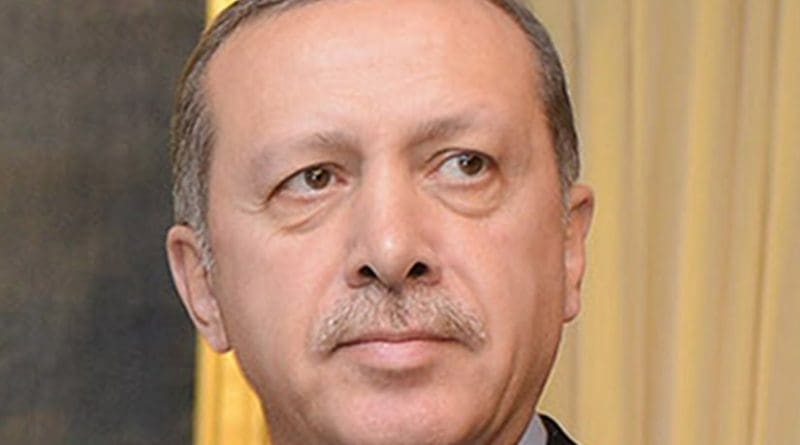Turkey: Erdogan’s AKP Wins Parliamentary Majority
By RFE RL
(RFE/RL) — Turkey’s Prime Minister Ahmet Davutoglu has hailed the results from November 1 parliamentary elections as a “day of victory” for his ruling Justice and Development Party (AKP) after a nearly complete vote count shows it won a majority of seats in the legislature.
The conservative Islamic-rooted AKP, which also is the party of Turkey’s President Recep Tayyip Erdogan, secured 49.4 percent of the popular vote with 97 percent of the ballots counted — enough to ensure 315 seats in the 550-member parliament and form a single-party government.
Turkey’s pro-Kurdish Peoples’ Democratic Party (HDP) called the results “disappointing,” even though it managed to clear the 10 percent threshold needed to enter parliament. Support for the HDP was about 10.4 percent of the vote, down from 13 percent in June.
In Turkey’s southeast, Kurds on the evening of November 1 set fire to garbage bins and threw stones at police in Diyarbakir after preliminary results suggested a strong victory for the AKP. Police used water cannons to disperse the crowds.
Meanwhile, Turkey’s main opposition Republican People’s Party (CHP) said there was no likelihood of a coalition government.
Opinion surveys before the election suggested that Erdogan’s party would win about 40 percent, short of the support needed to ensure a parliamentary majority.
The vote was Turkey’s second parliamentary election in five months, with ballots being cast as the mainly Muslim country confronts security concerns, a faltering economy, and deepening political, sectarian, and ethnic divisions.
The snap election was called after a June 7 poll resulted in a hung parliament and left the nation without a government after Erdogan’s AKP lost its majority, dealing a blow to the divisive leader’s ambitions to expand his powers through constitutional reforms.
A failure by the Islamic-rooted AKP to secure a majority could have forced the party into a powersharing deal with the secular Republican People’s Party (CHP), which is predicted to finish second.
The election is set against the backdrop of sectarian violence and the fallout from the conflict in neighboring Syria.
Violence between government forces and the outlawed Kurdistan Workers Party (PKK) intensified earlier this year in southeastern Turkey, and the country was rocked by twin suicide bombings that killed more than 100 people at an October 10 peace rally in Ankara.
Erdogan has said that Syrian intelligence and Kurdish activists worked together with the extremist Islamic State (IS) group, and the government has responded by stepping up its operations against suspected IS militants.
Turkey has also been alarmed by Kurdish forces’ territorial gains in Syria, which it fears could stoke separatism among its own Kurdish minority. And it is struggling to handle the more than 2 million refugees who have streamed across the border from Syria to flee the civil war there.
Economic Problems
Turkey’s $800 billion economy has also struggled, with growth last year slowing to below 3 percent and its currency, the lira, falling more than 20 percent against the U.S. dollar so far this year.
Erdogan has described the election as a chance to return to single-party rule by the AKP, which he says would mean stability.
“This election will be for continuity of stability and trust,” he said after praying at a new Istanbul mosque on October 31. He vowed to respect the results.
Erdogan’s opponents have accused him of becoming increasingly authoritarian, while Western governments have criticized him for cracking down on media freedoms — charges he rejects.
Ahead of the November 1 vote, Turkish police acting in connection with a money-laundering investigation this week raided the offices of two television stations linked to a Turkish cleric who lives in exile the United States.
Authorities took the two channels, which are seen as critical of Erdogan, off the air, drawing condemnation from the political opposition, European officials, and major international media.
“We share widespread concerns that recent events are part of a concerted campaign to silence any opposition or criticism of the government in the run-up to the election,” editors at some 50 international media organizations said in a letter.
Nils Muiznieks, the Council of Europe’s commissioner for human rights, warned that the actions against the media group sends a “very chilling message to the Turkish public and journalists less than a week before the election.”
The three major opposition parties on the ballot in the November 1 election have criticized the attack on the television stations as well.

